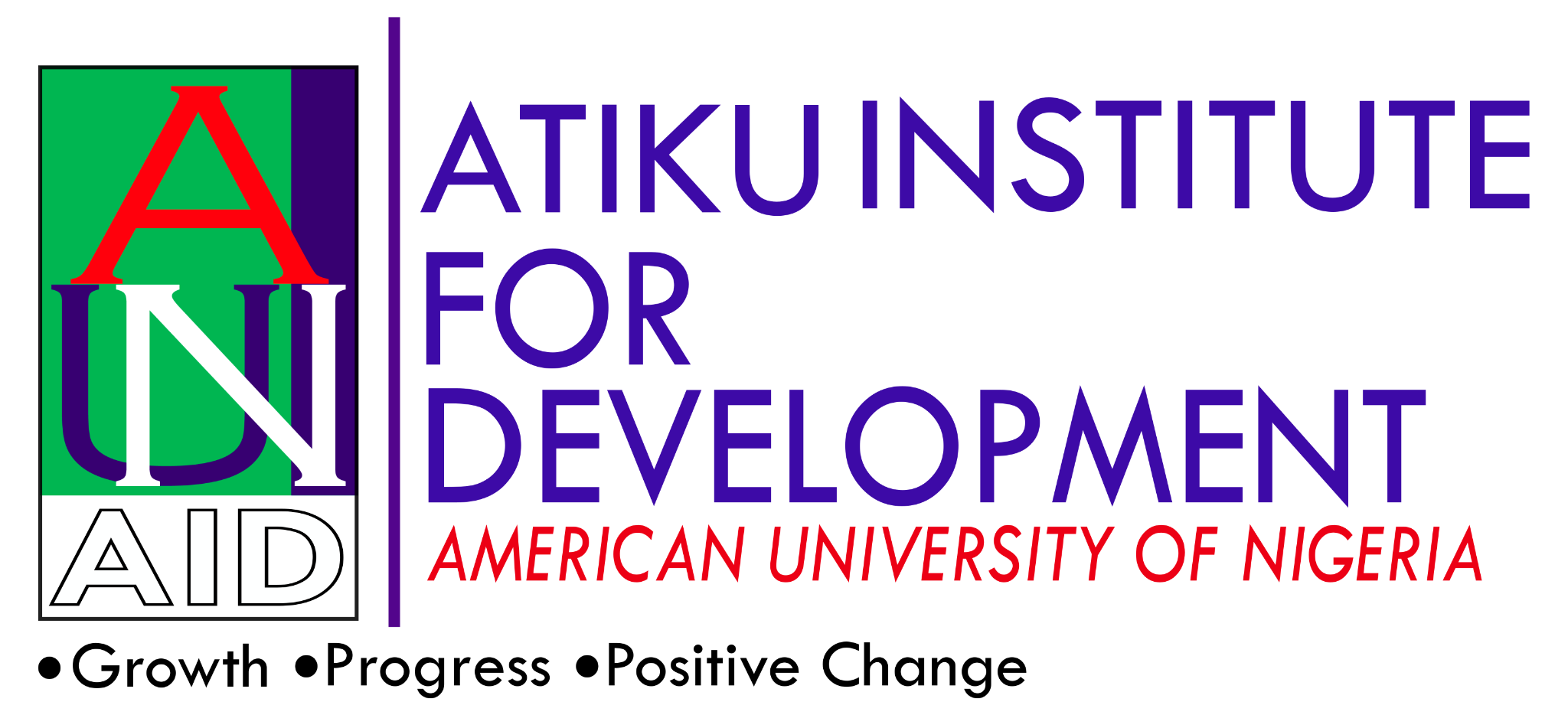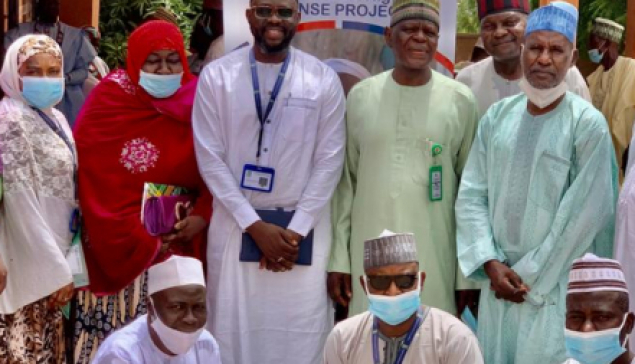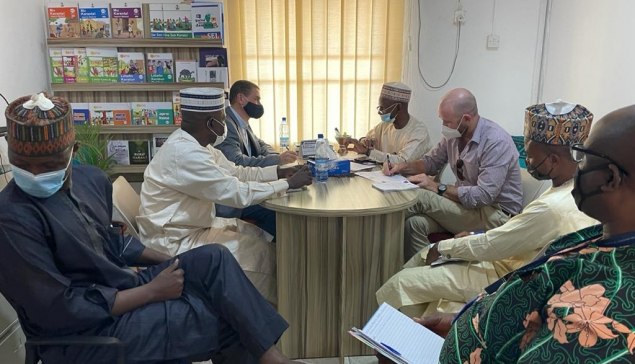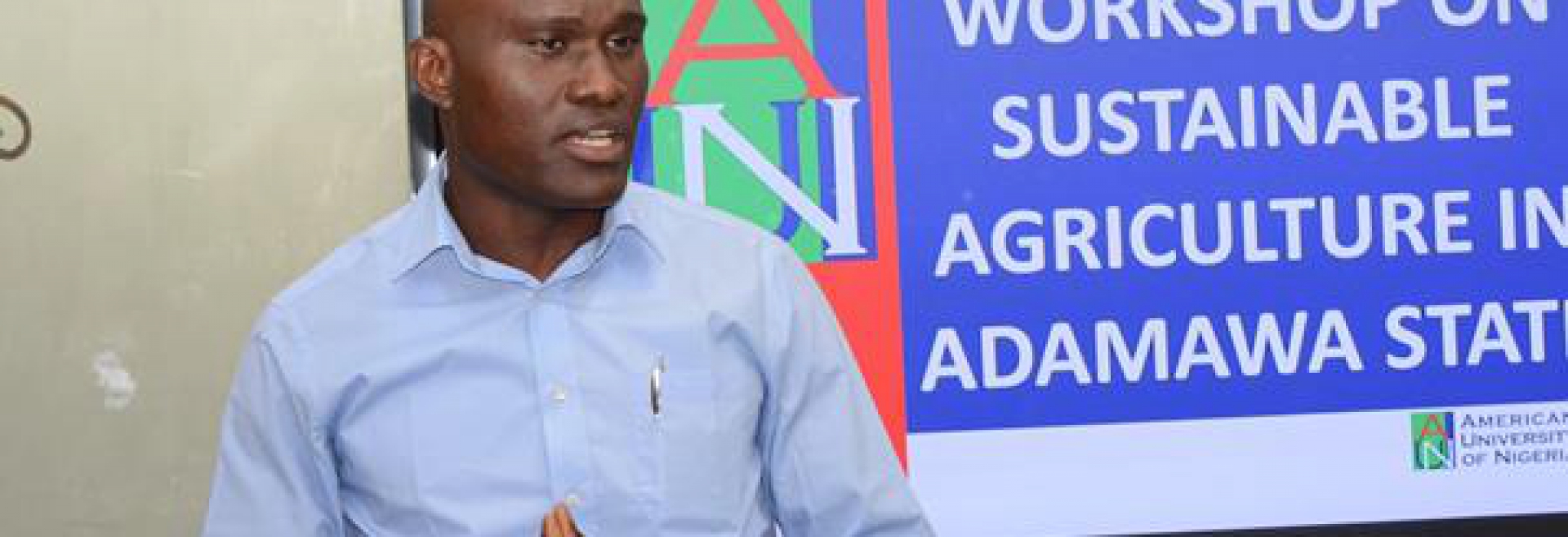
Workshop Participants Learn AUN’s Sustainable Agricultural Model
On October 30, Sustainability Field Research Manager, Rotimi Ogundijo, shared the AUN model for sustainable agricultural practices with the participants who attended the Stakeholders’ Workshop on Sustainable Agriculture in Adamawa State.
The workshop, which took place at the AUN Hotel, was hosted by the Atiku Center for Leadership Entrepreneurship and Development (ACLED). ACLED coordinates projects and activities relating to AUN as a development university.
AUN Grant Administrator and Coordinator for ACLED, Audu Liman, said the workshop brings stakeholders in Adamawa State together to be able to share and learn from one another various efforts to advance agricultural development in Adamawa State with regard to sustainable farming practices.
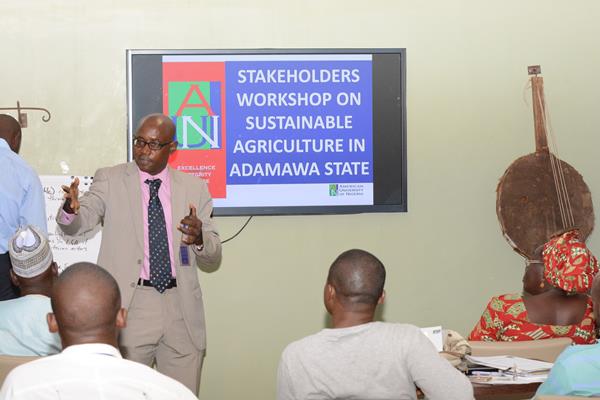
Mr. Ogundijo gave a history of sustainable agriculture intervention of the university. He said it was a response to the need to explore an alternative agricultural practice outside the conventional farming system for farmers who were displaced during the insurgency, thereby strengthening their livelihood. He pointed out that at a time when the humanitarian situation was considered to be in the emergency phase, AUN had leapfrogged into early recovery and livelihood, hence, the introduction of sustainable farming practice to IDPs residing in Bole and the host community.
The model, Mr. Ogundijo said employs a cost-effective, environmentally friendly, and high-yielding farming technique. The model re-uses organic waste materials in the agricultural value chain provides solutions to major challenges in farming practices while maximizing the use of natural resources in agriculture.
Mr. Ogundijo cited instances in which the model has been used to empower farmers. One of these was in helping internally displaced persons who were settled in Bole community during the insurgency to develop a sustainable farm project. Extension agents were engaged from Adamawa Agricultural Development and Investment Limited (AADIL) and funded by the Swiss government.
The participants learned that the model is currently being sponsored by the UN High Commission for Refugees (UNHCR) to extend the training to four local government areas in Adamawa State: Mubi North, Mubi South, Michika, and Maiha.
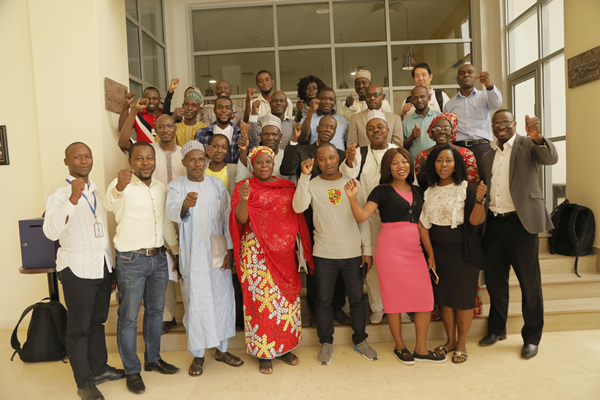
The participants shared suggestions for improvement on the model and several recommendations were made to advance sustainable agricultural practices and improve its adoption rate in Adamawa State.
The stakeholders at the workshop were drawn from the government and humanitarian sectors, including the Ministry of Agriculture, Adamawa Agricultural Development Programme, Christian Rural and Urban Development Association of Nigeria, AADIL, Civil Society Coalition for Poverty Eradication (CISCOPE), International Committee of the Red Cross, OXFAM, International Rescue Committee, and the State Ministry of Livestock and Fisheries.
By Omorogbe Omorogiuwa
